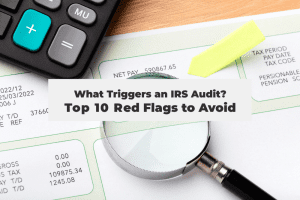Starting on an entrepreneurial journey can be confusing, but it’s important to lay a strong foundation. One of the first decisions a new business owner faces is choosing the right business entity. This choice can impact personal liability, taxation, and the ability to raise funds.
1. Limited Liability Company (LLC):
Features: Combines the personal liability protection of a corporation with the tax benefits and simplicity of a partnership.
Taxation: Typically, LLCs are pass-through entities, meaning profits and losses pass through to the owners and are reported on their personal tax returns.
Flexibility: Members can choose how they want the LLC to be taxed – as a sole proprietorship, partnership, or corporation.
2. Corporation (C-Corp):
Features: A legal entity separate from its owners, providing the strongest protection against personal liability.
Taxation: Subject to double taxation. The corporation pays taxes on its profits, and shareholders pay taxes on dividends.
Suitability: Ideal for businesses planning to raise capital, go public, or invest profits back into the company.
3. S Corporation (S-Corp):
Features: Combines the liability protection of a corporation with the tax benefits of a partnership.
Taxation: Profits and losses pass through to shareholders and are reported on their personal tax returns to avoiding double taxation.
Limitations: There are restrictions on the number and type of shareholders.
4. Partnership:
Features: A business entity with two or more owners who share profits and losses.
Taxation: Profits and losses pass through to partners and are reported on their personal tax returns.
Types: General Partnerships (GP), Limited Partnerships (LP), and Limited Liability Partnerships (LLP).
5. Sole Proprietorship:
Features: The simplest business form, owned and run by one individual with no distinction between the business and the owner.
Taxation: Profits and losses are reported on the owner’s personal tax return.
Liability: The owner is personally liable for all business debts.
Choosing the right business entity is a pivotal decision that can shape the trajectory of your business. So, It’s essential to consider factors like personal liability, taxation, and future growth plans. Consulting with professionals, like those at Taxfully, can provide clarity and ensure a smooth start to your entrepreneurial journey.
From a Tax Standpoint: A Comparative Scenario
Scenario: Let’s assume each business entity earned a net profit of $100,000 during the tax year. Here’s how the tax situation might play out for each:
1. Limited Liability Company (LLC):
As a pass-through entity, the LLC itself doesn’t pay taxes. Instead, the $100,000 profit passes through to the owner’s personal tax return. Assuming a personal tax rate of 24%, the owner would owe:
Tax Owed: $24,000
2. Corporation (C-Corp):
Assuming a corporate tax rate of 21%, the C-Corp would first pay:
Corporate Tax: $21,000
If the remaining profit of $79,000 is then distributed as dividends, and the owner has a dividend tax rate of 15%:
Dividend Tax: $11,850
Total Tax Owed: $32,850 (Combining Corporate and Dividend Tax)
3. S Corporation (S-Corp):
Like the LLC, the S-Corp’s profit passes through to the owner’s personal tax return. However, the owner might also draw a reasonable salary, which is subject to payroll taxes. Assuming the owner took a $50,000 salary (with a payroll tax of 15.3%):
Payroll Tax: $7,650
Personal Tax on $50,000 profit (at 24%): $12,000
Total Tax Owed: $19,650
4. Partnership:
Assuming a two-member partnership where profits are split equally:
Each partner reports $50,000 on their personal tax return.
Assuming a personal tax rate of 24%, each partner would owe:
Tax Owed (per partner): $12,000
Total Tax Owed (combined): $24,000
5. Sole Proprietorship:
The owner reports the $100,000 profit on their personal tax return. In addition to regular income tax, they’re also subject to self-employment tax.
Personal Tax (at 24%): $24,000
Self-Employment Tax (15.3% on 92.35% of profit): $14,129.70
Total Tax Owed: $38,129.70
Note: These scenarios are simplified and don’t account for various deductions, credits, or specific tax situations that might apply to each business entity. They’re meant to provide a general overview of potential tax implications.
Start your business for free today




